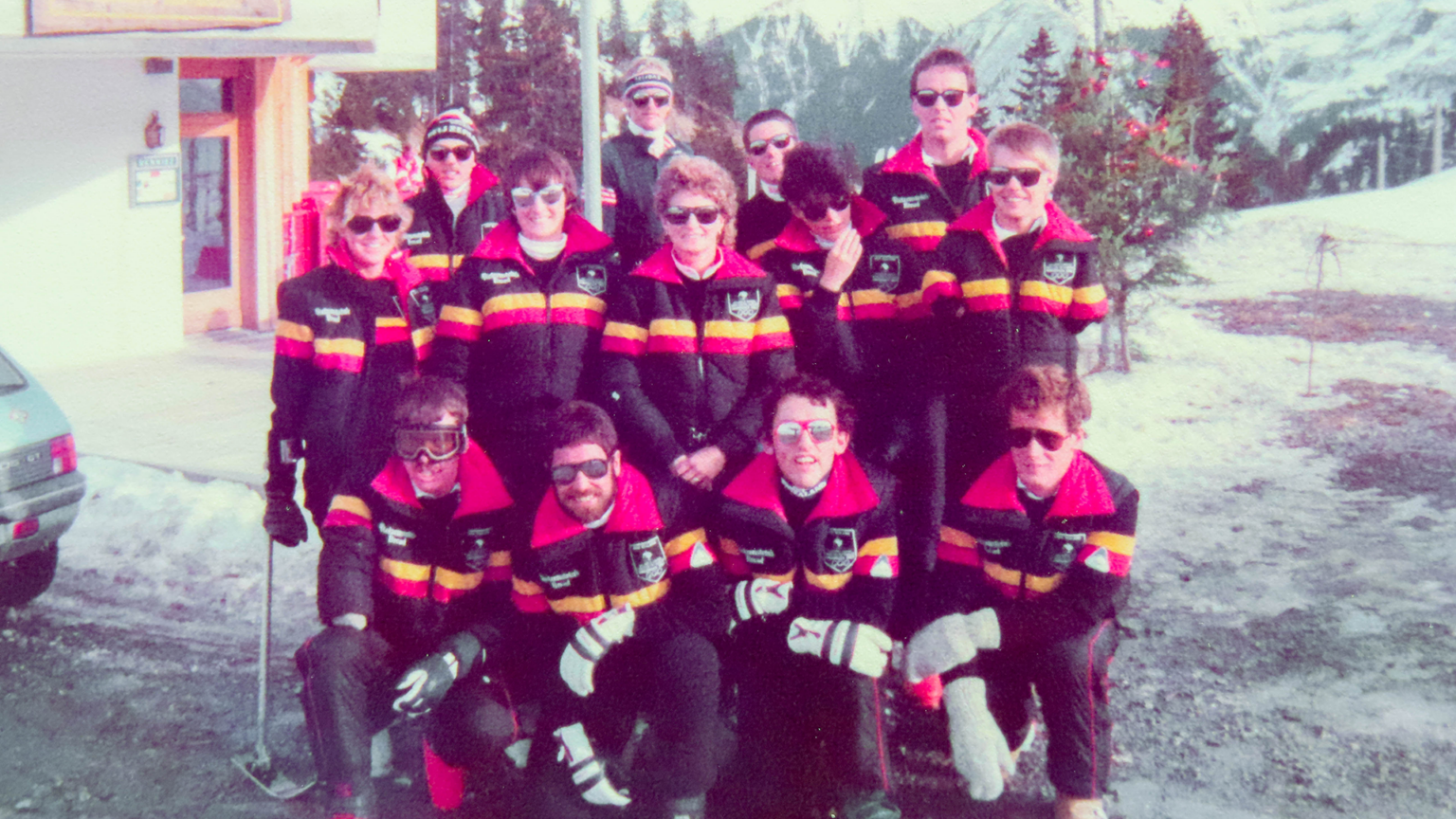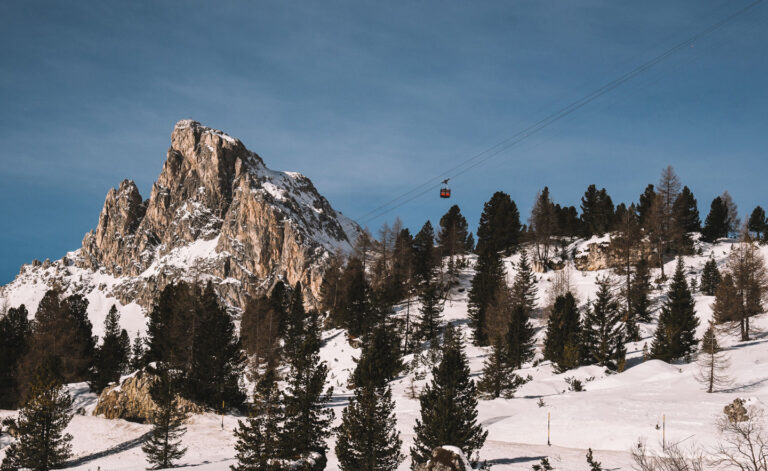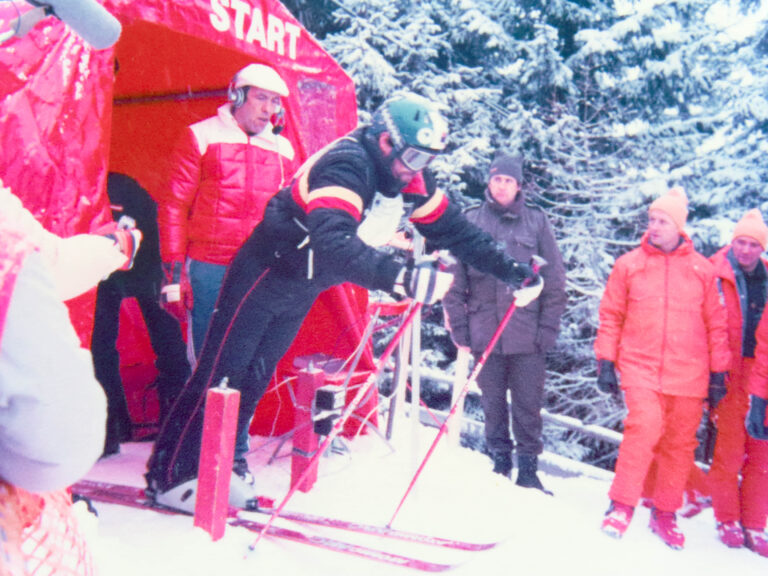The NZ Paralympic Team who featured at the Innsbruck 1984 Paralympic Winter Games are set to toast the 40th anniversary of their success as part of a special gathering over Labour Day weekend. We recall the accomplishments of that trailblazing Team, who snared five medals in a groundbreaking winter Paralympic Games for New Zealand.
It reads like a story of the The Mighty Ducks meets Rocky.
How a team based in the Southern Hemisphere, with no funding, an embryonic race programme and no high performance support achieve the miraculous feat of winning five medals and finishing 11th in the medal table against the powerhouse Northern Hemisphere winter sport nations.
Whether it was by luck or design coupled with a large dollop of Kiwi ingenuity, it was an extraordinary story which still stands today as one of New Zealand’s most successful Winter Paralympic Games (previously known as the World Winter Games for the Disabled).
The genesis of disabled skiing in New Zealand was started by Gillian Hall in the 1970s – who had been inspired by the US programme, which had been introduced in the wake of the Vietnam War.
Slowly gaining a foothold in New Zealand as a means of therapy, Gillian persuaded professional ski racer and ski instructor David Boyd to come back home to New Zealand from the US in the late 70s to spread the word.
At the Geilo 1980 Paralympic Winter Games, David coached the first ever NZ Paralympic Team to feature at a winter Paralympic Games. The three-strong team of Paralympian #27 Peter Baddeley, #28 Ed Nichols and #29 Craig Philip – performed with pride but did not bring home a medal.
“There was no way we were ready,” explains David. “We had no race programme, no advanced elite training programme – the only way it would work is if we started early and worked more as a team together.”
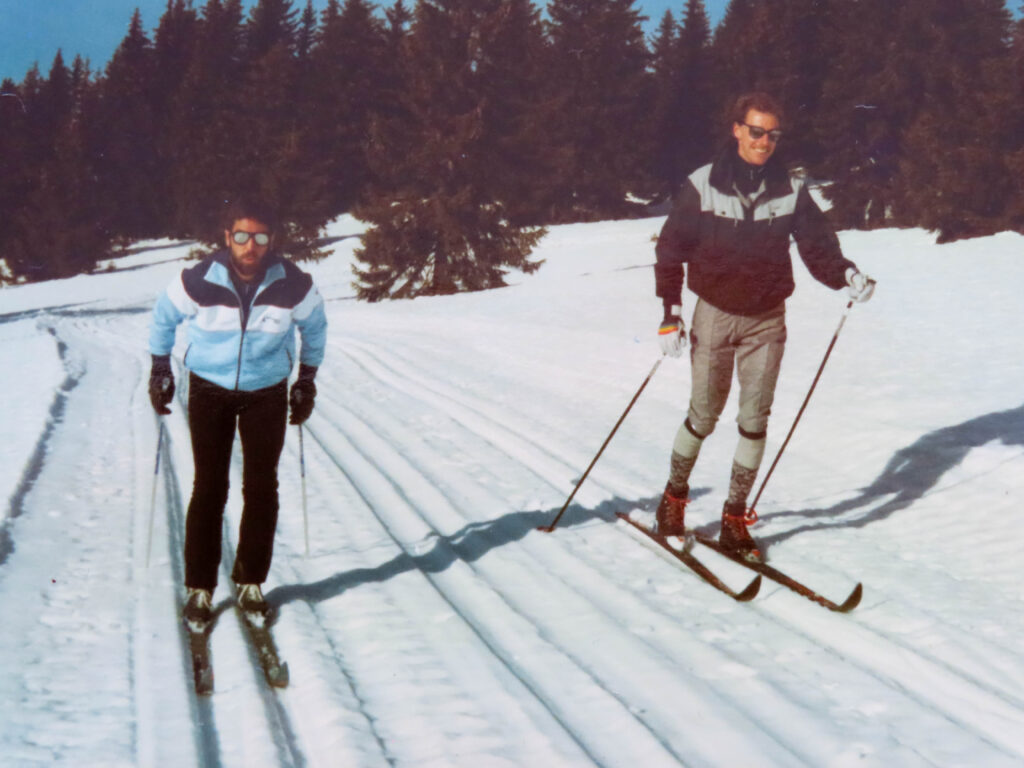
To this end, a number of new emerging skiers were identified in 1981 as a training squad, with final team selection announced in 1983 as the focus honed in on Innsbruck 1984.
Another key member of that Team to emerge was Roger McGarry who first became involved in Disabled Skiing aged “16 or 17.” As a student at King’s College, the Red Cross had an emergency relief team at the school. Out of this the Auckland Association of Disabled Skiers required help transporting skiers to Mt Ruapehu. Roger would start as a helper before graduating as an instructor, and it was here he formed a friendship with Paralympian #46 Chris Orr.
“Chris and I started recreationally ski together and when he started racing, I became his guide where I would ski in front tapping my poles and offering verbal cues to help him navigate a route to the bottom,” says Roger, now aged 64.
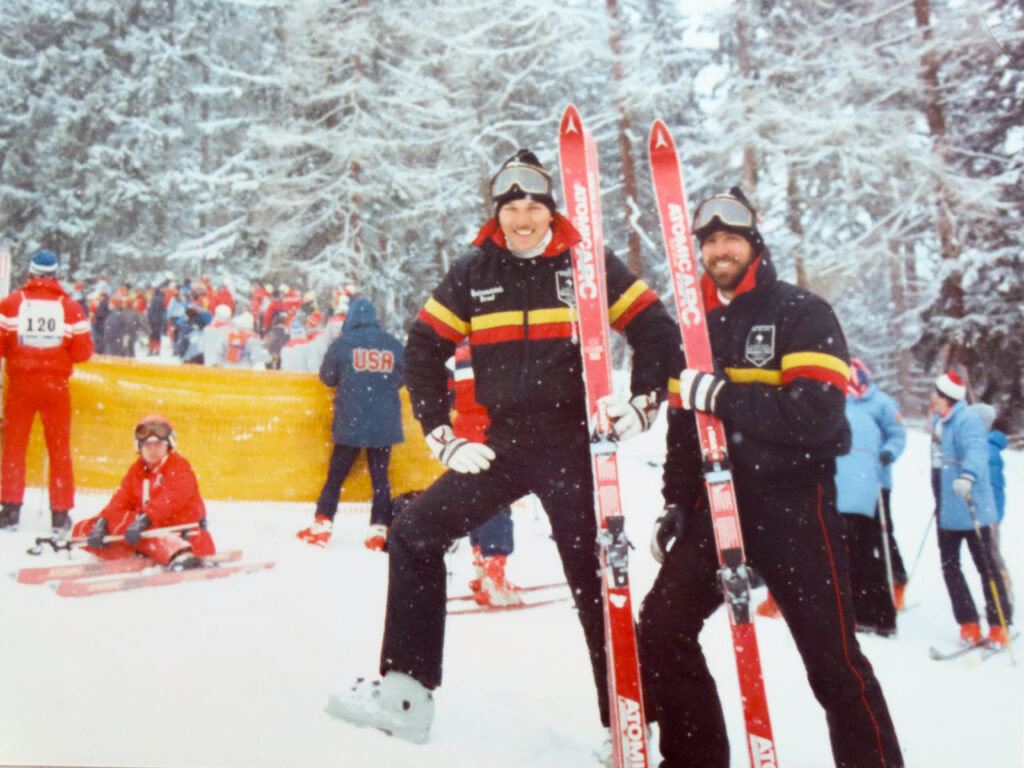
Chris, who is visually impaired as a result of a shotgun incident in Dunedin aged 21, found purpose and meaning in life through skiing. Having been an accomplished sportsman pre-accident he thrived with the support of Roger.
“Roger was not only a good reliable guide but also one of the most fantastic human beings I’ve ever met,” said Chris. “He got the team together financially, he coached, he organised the flights. He put everything into it. Roger was the glue for the team.”
In the New Zealand winter of 1983 the original seven athletes from the training squad were selected and with the addition of Paralympian #45 Viv Gapes (nee Martin) the official New Zealand team was announced for Innsbruck 1984. Yet as the trip was self-funded it required a gargantuan fundraising effort to enable the Team to make it to Austria.
Studying land surveying at that time and with “a little bit of time on his hands” Roger dedicated much of his time to fundraising on the trip.
“We organised a national raffle with the prize of winning a Mazda saloon car,” he explains. “We had family and friends in the mall selling tickets, it was a huge effort from everyone and we sold 100,000 tickets – which was a phenomenal number. We also managed to raise $140,000 – which was an amazing amount for 40 years ago and this allowed us to send a full team of all eight selected athletes to Innsbruck.”
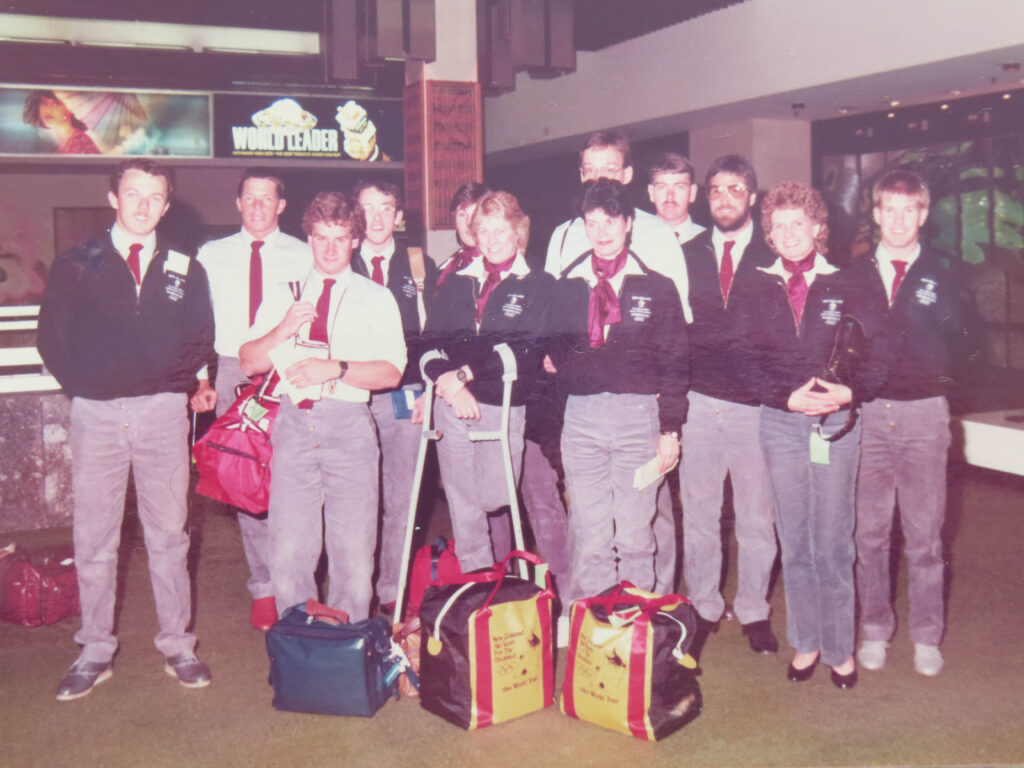
L-R: Roger McGarry, Martin Clark, Mark Edwards, Daryl Gill, Kay Shears, Patricia Craig, Mike Curzon, Viv Gapes, Ed Bickerstaff, Chris Orr, Lorraine Philip, Craig Philip. Not pictured: David Boyd, Denis Butler.
The Team then flew out to France for three weeks of training in the resort of Avoriaz – a period critical not only for preparation but also solidifying the camaraderie in the team.
As David insists with no funding this made the group very self-reliant but all the stronger for that.
“The preparation not only over the final weeks but many months was amazing,” he insists. “We did rely on the generosity of some unbelievable supporters, and I remember Han Klisser, the man who brought Vogels bread to New Zealand, were incredible but by and large we were totally on our own – which is not all bad because we just got on and did things and this helped build resilience.”
The challenges were demanding both on and off the slopes. Travelling from France by train to Austria via Switzerland with a group of disabled athletes with a huge amount of equipment was not easy but everyone pitched in to help.
“I have this one memory of catching the train from Geneva to Innsbruck and the Swiss being Swiss would allow no leeway for time,” he explains. “We had to change trains in Zurich in a very short time and we were moving a mountain of luggage and skis from one train to the other and I recall Chris, who is blind, standing on the train saying, ‘hand me the skis.’ But Chris was on completely the wrong train. It was hilarious, Chris was laughing too, and we made it on the right train with about two seconds to spare.”
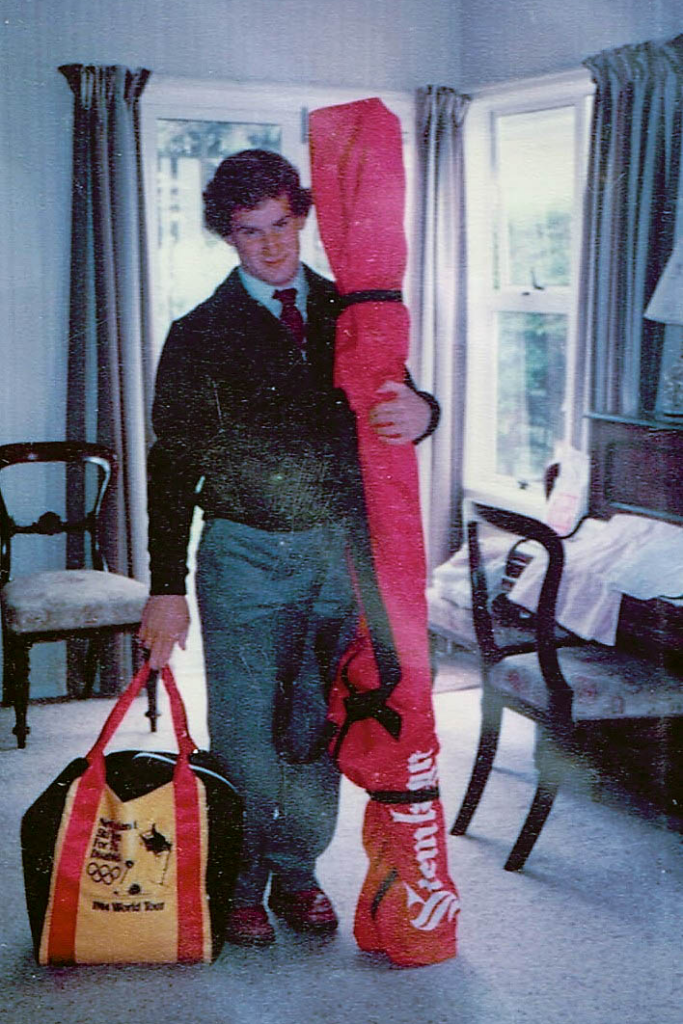
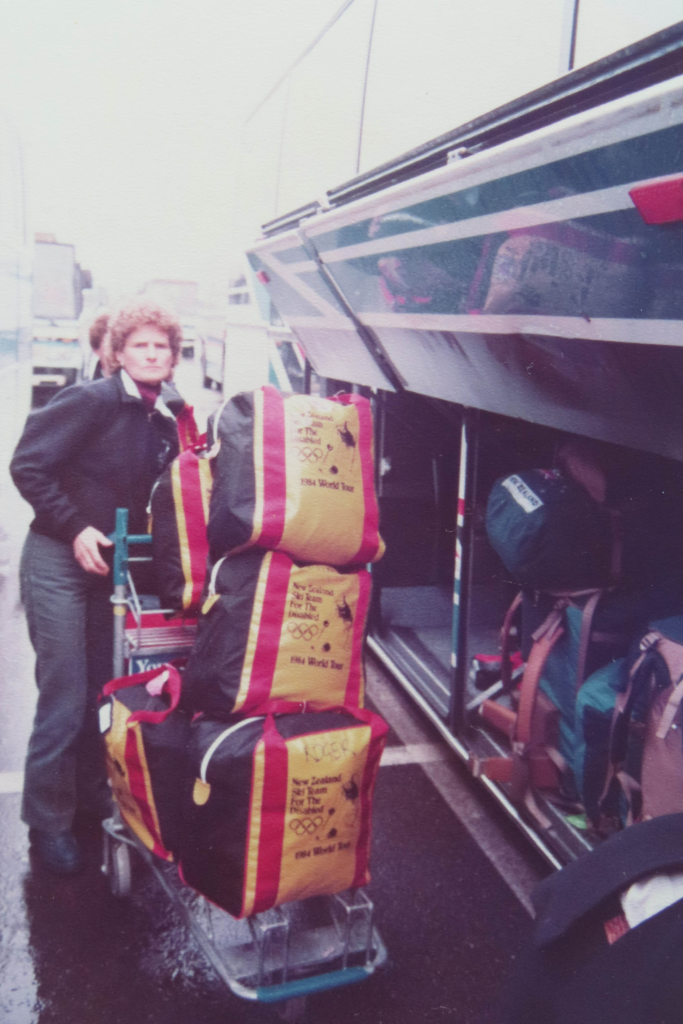
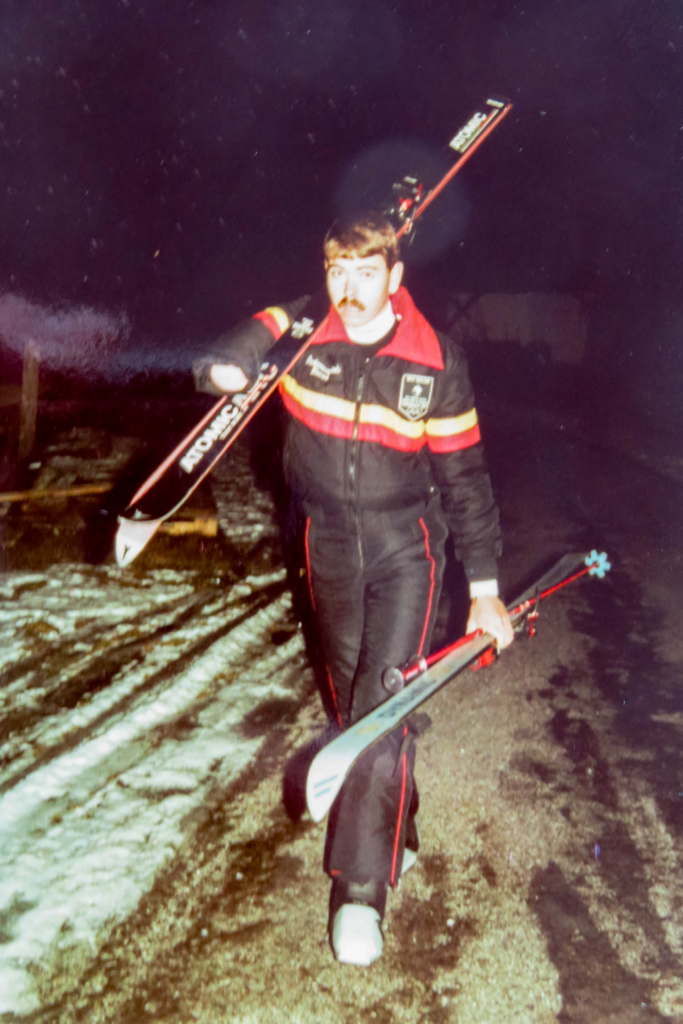
Meanwhile, Paralympian #46 Mark Edwards, a teenage skier with spina bifida, also had to overcome a huge challenge to even make it to the start line in Innsbruck after he was struck from behind by a skier in pre-camp in France causing serious kidney bruising.
“Mark’s condition means he has challenges with his kidneys anyway, so the bruising was a lot worse for him than it would be for others,” adds David, who was part of the coaching group in Innsbruck. “Mark would be one of bravest people I have ever had the honour of knowing. To deal with that injury in a hospital – where he did not speak French – and two weeks later win a bronze medal is a measure of his quiet determination, which was incredible.”
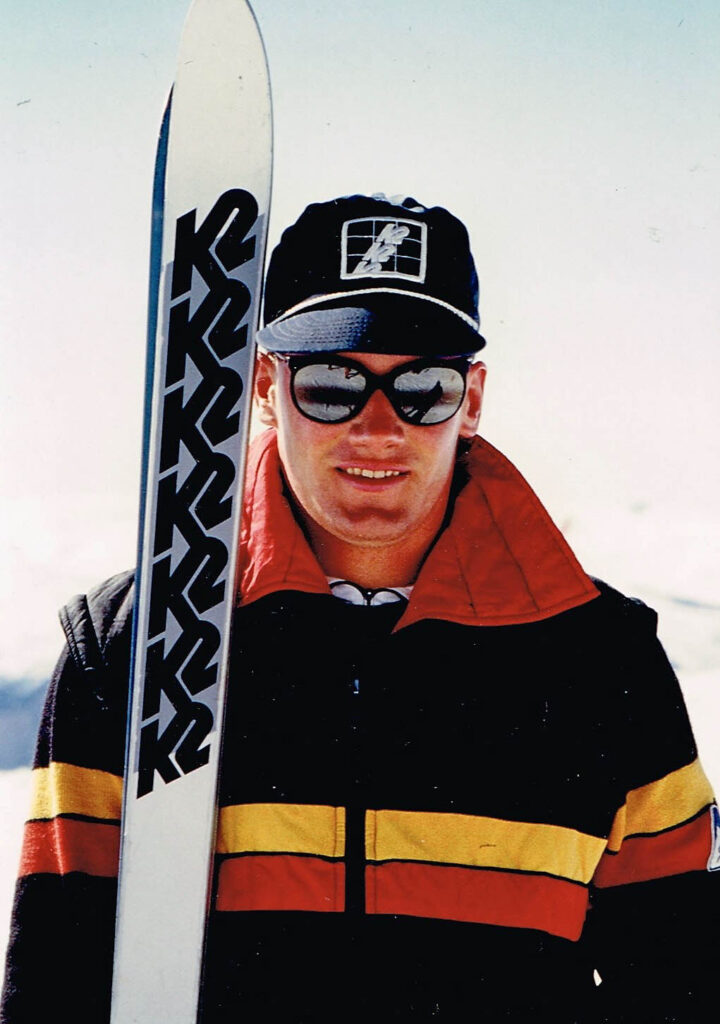
The group may have gone on to win five medals but as Roger attests the group arrived in Innsbruck with zero expectations. Interacting on arrival with dozens of athletes who had grown up on the snow was an intimidating prospect with Roger adding: “Here we were little old New Zealand who had come to play in the Northern Hemisphere sand pit. We were a group of naïve Kiwis, a bit of a novelty. We had a really happy team.”
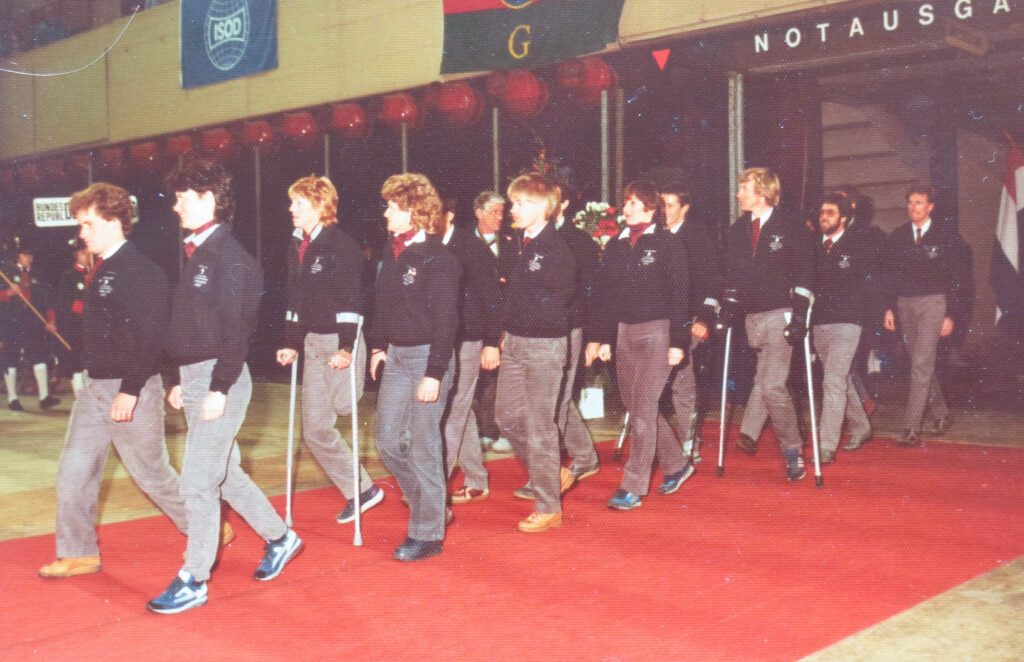
The third Paralympic Winter Games opened for business on 15 January 1984. More than 400 athletes from 21 countries competed across three sports – Para alpine skiing, Para cross country skiing and Para ice sledge speed skating – with Chris recalling the buzz of appearing in the Opening Ceremony as a real highlight.
“When we walked into that stadium together in Innsbruck it was such an amazing moment,” he adds. “We’d been together as a team for so long and now we were representing our country.”
Roger has so many wonderful memories of the seven days of the Paralympics. He forged a long-standing friendship with the team driver, Hubert. He recalls humorous conversations with waiters in restaurants and remembers Craig Philip, one of the competing Kiwis forming a friendship with a Swedish athlete who has a similar disability. Craig, who has no arms, took the Swedish’s athletes Saab car for a spin, which was operated via a foot operated turntable.”
In terms of the competition, for Chris – who was skillfully guided by Roger – the highlight was the outstanding silver medal in the Men’s Downhill B1. Competing in the first professionally organised race of his life. He survived a mid-race fall to take a podium spot and create history as the first New Zealand Paralympic Winter Games medallist.
“To know I’d won a medal was amazing,” he says. “It was such a euphoric feeling. It changed my life. It was not something I would talk about very often, but it meant other people treated you differently as a Paralympic medallist.”
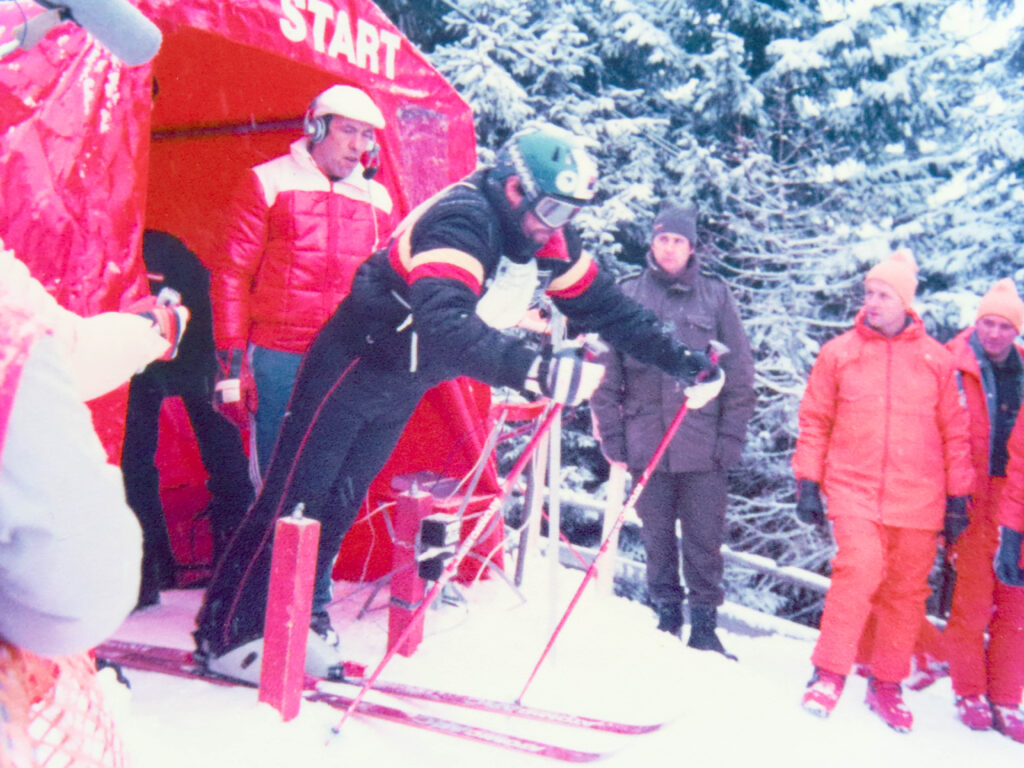
For Roger too – having forged a longstanding relationship as a guide to Chris – it was a wonderfully special moment.
“I have skied blindfold before in training, and you have no sensation as to whether you are moving or not,” he explains. “Screaming down a race course blind, is exceptionally difficult. He has suffered a few concussions, the medal was a reward for Chris’ bravery.”
Chris’ medal triggered a rush of medals by the small but quality Kiwi contingent. Vivienne Gapes claimed three medals with Women’s Giant Slalom B2 gold and silver medals in the Women’s Downhill B2 and Women’s Alpine Combination B2.
Add in Mark Edwards’ bronze in the Men’s Downhill LW3 – the Team claimed an outstanding total of five medals – the Mighty Ducks had defied all expectations to ignite New Zealand’s rich Paralympic Winter Games tradition, which has seen the country win a medal at all but one Paralympics since 1984.
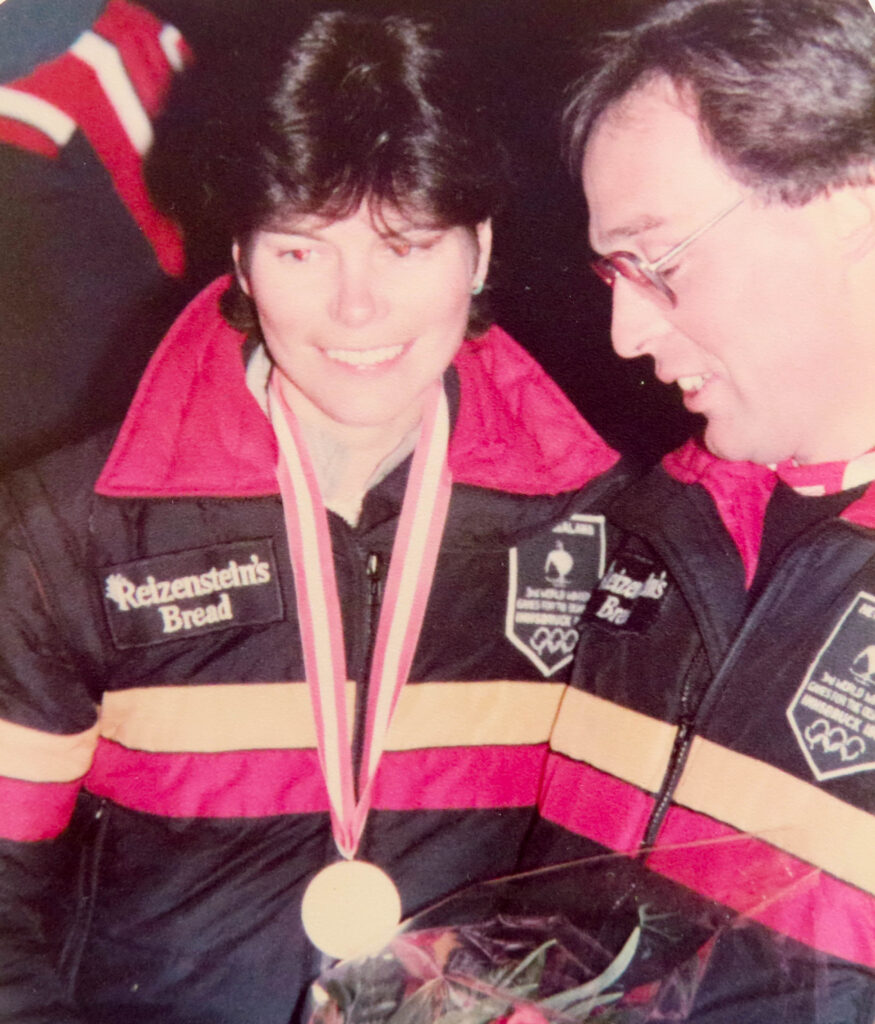
Looking back 40 years the pride remains the same in what this Team of extraordinary Kiwis achieved in Innsbruck.
“This group of people proved that you can still achieve no matter what the disability,” explains Chris. “Craig (Philip) had no arms, others were leg amputees, but I don’t think of them as any different, just part of the Team. The disability for me didn’t count, it was the human beings that counted.”
For Roger their success represented a uniqueness about the Kiwi identity.
“In many ways our success was the Kiwi way, although you do forget these were different times – before the internet and Google. These were simple times. I remember we travelled from New Zealand on the Boeing 747 and many of the Team were invited on to the flight deck. Chris put his hands on the throttle of the plane!”
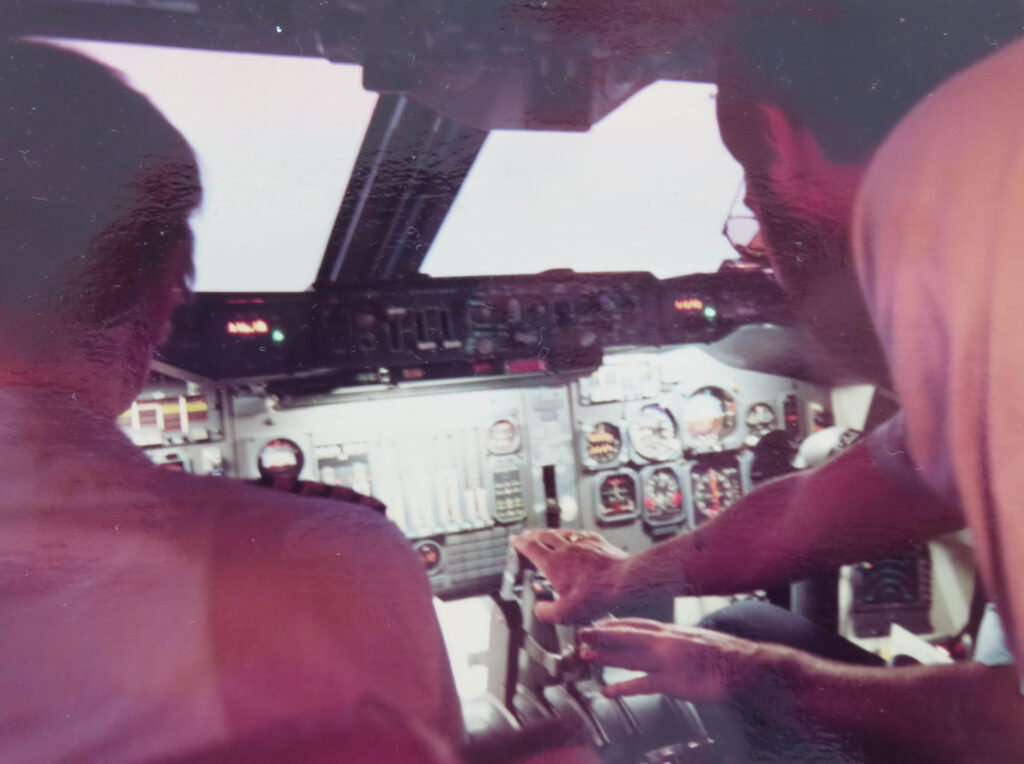
Some four decades on, the importance of what that Team achieved can perhaps best be illustrated by the fact that all eight team members and support staff plan to be in Methven on Labour Day weekend. These include Paralympian #41 Denis Butler and Mike Curzon (guide to Gapes and team physio), who are flying in from their US homes to be present at this special reunion.
“That fact everyone has made this a real priority is awesome,” adds David who would later support Paralympic champions Paralympian #158 Adam Hall and Paralympian #188 Corey Peters. “I’m really looking forward to catching up, it is a special chance to meet up again and tell some exaggerated stories about what we achieved.”
The Team returned home to little fanfare but what is the legacy of the class of Innsbruck 1984?
“I hope other people will look at us and think if they can do it, we can do it too,” explains Chris, 70.
While for David the Team personified attitude.
“It is not what you have or haven’t got in terms of both physical ability and or resources,” he adds. “The most important thing, for me, was what the team showed was attitude.”
The eight athletes who featured for the NZ Paralympic Team at the 1984 Paralympic Games were:
- Craig Philip – Paralympian #29
- Ed Bickerstaff – Paralympian #40
- Denis Butler – Paralympian #41
- Martin Clark – Paralympian #42
- Patricia Craig – Paralympian #43
- Mark Edwards – Paralympian #44
- Vivienne Gapes (nee Martin) – Paralympian #45
- Christopher Orr – Paralympian #46
https://paralympics.org.nz/games/previous-winter-games/innsbruck-1984/

